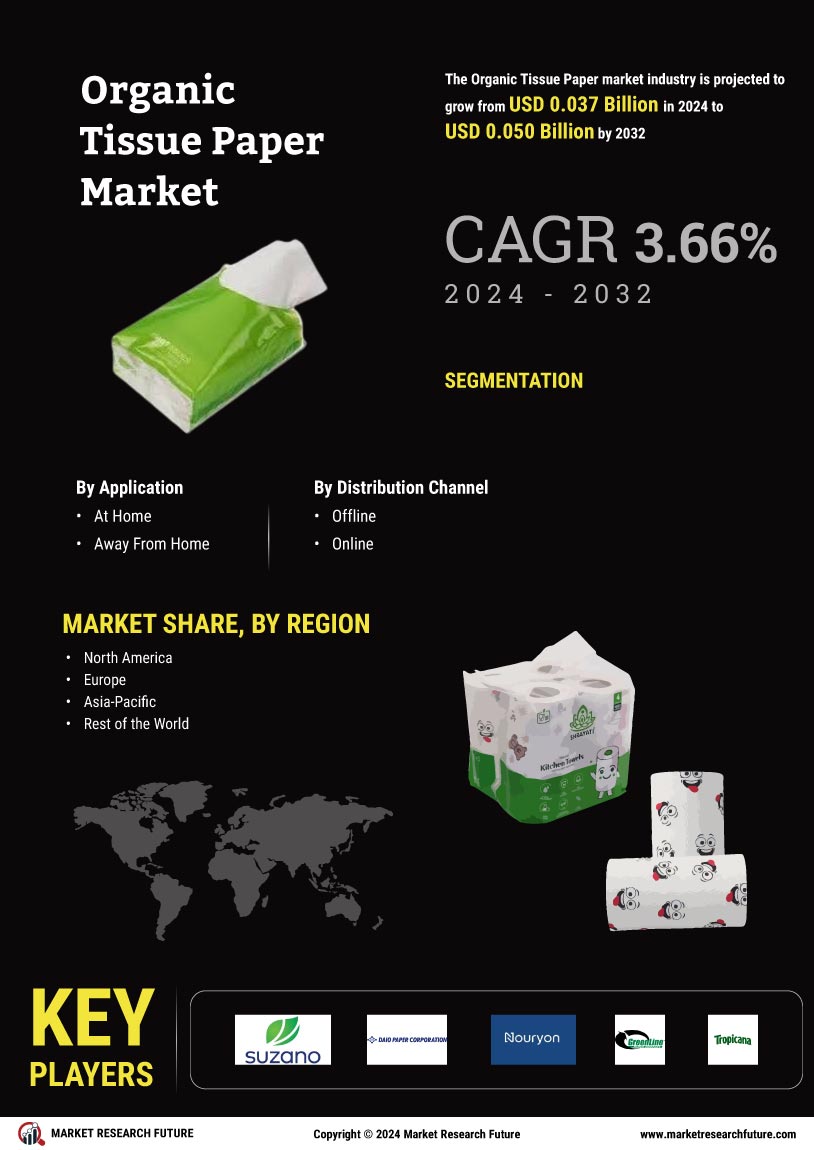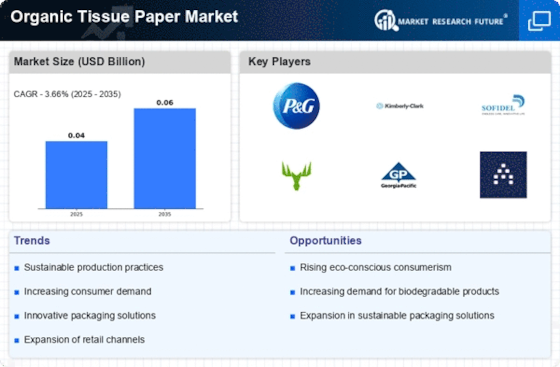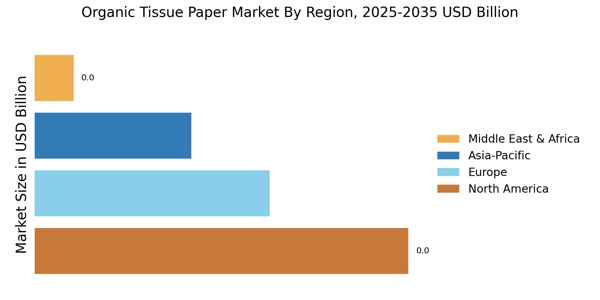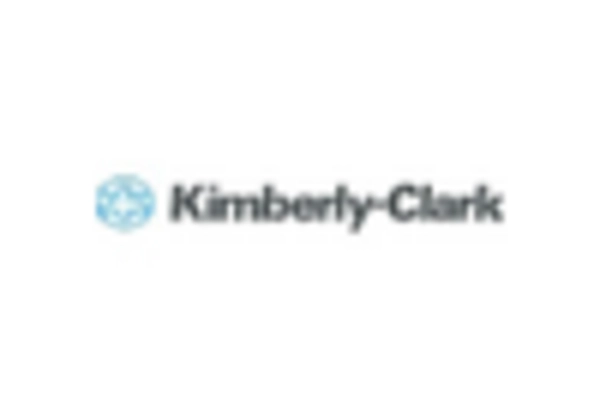Leading market players are investing heavily in research and development in order to expand their product lines, which will help the Organic Tissue Paper Market grow even more. Market participants are also undertaking various strategic activities to expand their footprint, with important market developments including new product launches, contractual agreements, mergers and acquisitions, higher investments, and collaboration with other organizations. To expand and survive in a more competitive and rising market climate, the Organic Tissue Paper industry must offer cost-effective items.Manufacturing locally to minimize operational costs is one of the key business tactics used by manufacturers in the Organic Tissue Paper industry to benefit clients and increase the market sector. In recent years, the Organic Tissue Paper industry has offered some of the most significant advantages to the sanitation market. Major players in the Organic Tissue Paper Market, including Suzano Papel e Cellulose, Daio Paper Corporation, Nouryon, Nature Fluent, GreenLine Paper Company, Tropicana Food and Beverages Gmbh, Shanghai Xuanjie Trade Co.Ltd, Weoca Kartonagen Gmbh, Zhangzhou Lianan Paper Co Ltd., and others, are trying to increase market demand by investing in research and development operations.Daio Paper Corporation, a Japan-based company, is a paper, paperboard, and pulp manufacturer. The company manufactures general printing paper for catalog and magazines, office paper, newsprint, Kraft liner, corrugated materials, facial and toilet tissue paper, towels, and feminine hygiene products. The company also provides adhesives papers, operating in Japan, Chile, and the United States. The company is involved in two business segments; the paper and paper board segment and the home and personal care segment, which is involved in the production and sale of disposables, diapers, sanitary paper products, feminine care products, and wet wipes.The company also deals with timber, forestry, logistics, power sales, machinery, golf course, and real estate leasing businesses.
In August the company chose Walmet as its Advantage tissue production line supplier.Suzanne is a Brazilian company headquartered in Salvador, recognized for innovation and a revolutionary spirit over 90 years. The company is a reference in the development of products manufactured from planted eucalyptus forests and one of the biggest vertically integrated manufacturers of eucalyptus pulp and paper in Latin America. The company produces pulp and paper with its presence in over 80 countries with eight industrial units throughout the country. The company is among one of the ten largest producers of market pulp and paper.
In July Suzano Papel e Cellulose, a producer of hardwood pulp, declared their intention to erect approximately 1660.5 million dollar tissue paper and a conversion factory in Brazil.

















